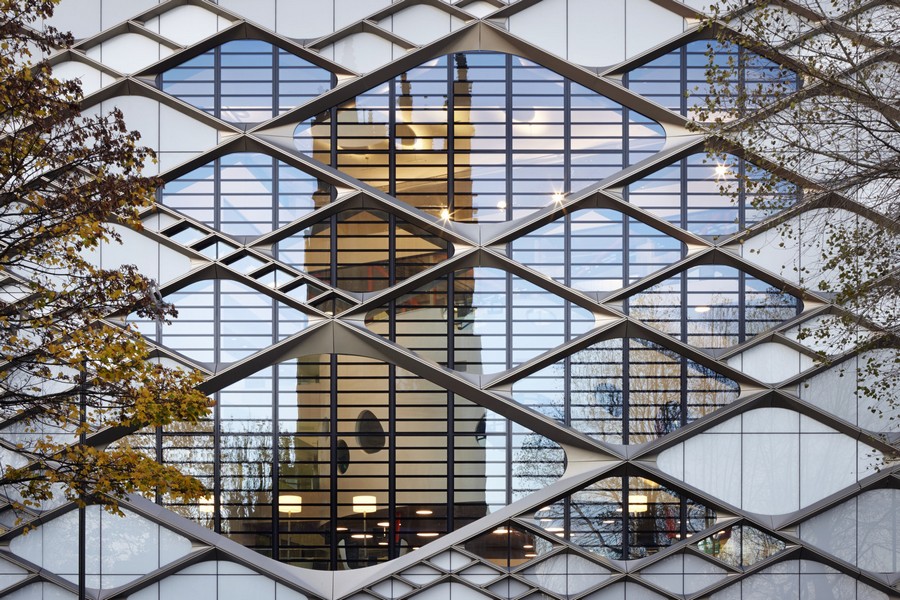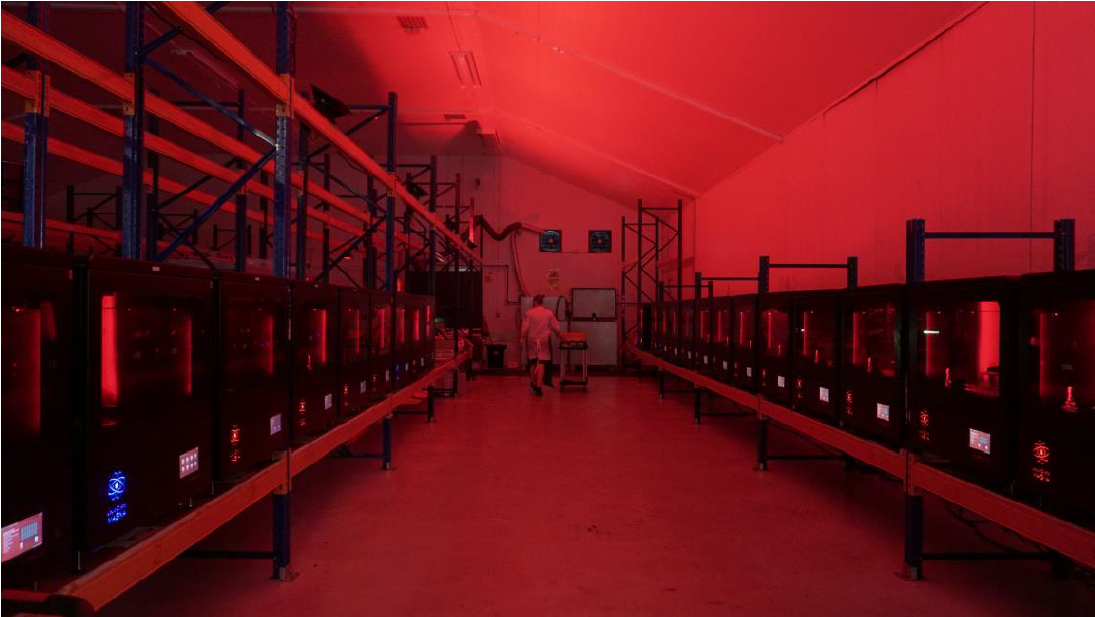A project led by academics at the University of Sheffield and the University of the Arts London (UAL) has received £766,675 of government funding to scale up its delivery of personal protective equipment (PPE) to refugees living in Jordan’s Zaatari camp.
Launched in March, the project, which has been delivered in collaboration with the United Nations High Commissioner for Refugees (UNHCR) Jordan and researchers from Al Abayt University and the University of Petra, utilized 3D printing among other methods to develop innovative PPE solutions for people living in the camp.
The new government funding is provided through UK Research and Innovation’s Global Challenges Research Fund, in response to the Covid-19 pandemic.
“This project is about empowering refugees in a moment of health crisis,” said Professor Tony Ryan, Director of the Grantham Centre for Sustainable Futures at the University of Sheffield and Principle Investigator on the project. “I’ve spent years working with the people of Zaatari and learning from their incredible resourcefulness and creativity.
“Faced with a global pandemic, we are working together to design and produce the protective equipment the refugees and their host community need to stay safe, while reducing plastic waste, creating jobs and building resilience within the camp community.”

Utilizing 3D printing
Amid PPE shortages at the beginning of the UK’s lockdown, the team of scientists and artists used 3D printers within the University of Sheffield’s Makerspace iForge innovation facility to design and manufacture laser-cut and 3D printed face shields. Using the digital printing capabilities at the UK universities alongside facilities in the Zaatari camp, the team collaborated with refugees to make PPE prototypes from low-cost and locally available materials.
Through 3D printing and other methods, the scientists and refugees developed new hand hygiene products as well as reusable masks, shields, and gowns.
Along with the secured funding, these digital technologies will expand the reach of the project which is also looking to address broader questions around the effects of PPE uptake in regards to preventing and treating Covid-19.
“The cooperation with the University of Sheffield and UAL has resulted in training many Syrian refugee women in the Zaatari camp with skills in developing PPE,” said Moh’d Al Taher, associate external relations officer at UNHCR. “These skills created livelihood opportunities for refugees and supported the refugee community. UNHCR plans to cover the needs of the camp community with PPE using high-quality and low-cost materials; innovative solutions could only achieve this.”

Scaling up the project
The UNHCR is preparing for a ‘dramatic increase’ in Covid-19 transmission in the area and is therefore stating an urgent need for supplies of PPE which are compliant with Jordanian standards. 3D printing would help to fulfill this demand, as with limited buying power neither the Jordanian government nor UNHCR is well-placed to compete globally for supplies.
The funding will enable the creation of small-scale manufacturing jobs in Zaatari alongside sharing design innovations, creating equitable distribution networks, and gathering data on health behaviors, through the use of digital technologies.
The project is also planning to develop new products for hand hygiene in collaboration with Givaudan, the world’s largest purveyor of flavor and fragrance.
3D printing meeting the global PPE shortage
Many 3D printing companies and organizations have stepped up during the pandemic to plug the gap in PPE supply to the likes of hospitals, care homes, and other key worker sectors.
In June, Hungarian 3D printer manufacturer CraftBot announced the launch of a Rapid Local Manufacturing Centre (RLM) in Cornwall in the UK, to support the national effort in producing PPE for workers during the pandemic. The center will also serve as an information hub for those looking for support and guidance in using their own 3D printers to produce PPE.
Meanwhile, 3D printer and materials manufacturer PhotoCentric was awarded a contract by the UK government to manufacture over 7.6 million 3D printed face shields over the next six months.
During the crisis, the likes of The European Association for Additive Manufacturing (CECIMO) and the U.S. Department of Health and Human Services (HHS) issued calls to action to the 3D printing industry to coordinate a response to the pandemic, while a public Google sheet was set up to gather makers from across the globe to provide their 3D printing services.
A similar initiative was organized by Formlabs, whereby a support network connecting available makers to projects in need of production was set up in a Twitter post.

Nominations for the 2020 3D Printing Industry Awards are still open, let us know who is leading the industry now.
The fourth edition of the 3D Printing Industry Awards Trophy Design Competition is now underway. Enter your design for the chance to win a CraftBot Flow 3D printer.
To stay up to date with the latest 3D printing news, don’t forget to subscribe to the 3D Printing Industry newsletter or follow us on Twitter or liking our page on Facebook.
Are you looking for a job in the additive manufacturing industry? Visit 3D Printing Jobs for a selection of roles in the industry.
Featured image shows The Diamond Building at the University of Sheffield. A multidisciplinary teaching space for engineering and the home of the university’s makerspace iForge. Photo via sheffield.ac.uk.



